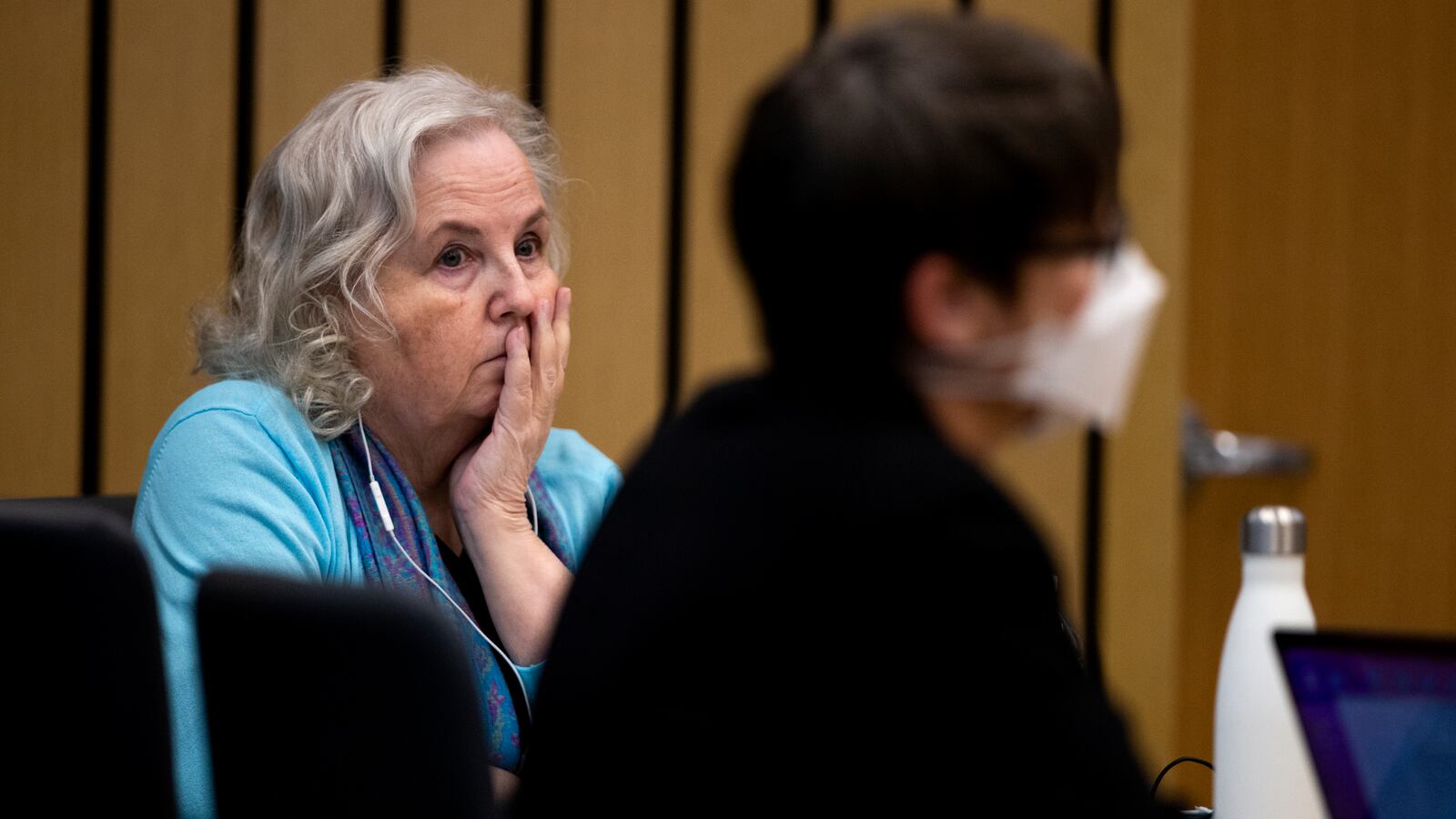A Multnomah County jury took about 24 hours to decide the fate of Oregon romance novelist Nancy Crampton Brophy, who has for the past five weeks stood trial to face charges that she murdered her chef husband in cold blood.
The verdict: guilty of second-degree murder.
The unanimous decision by the 12-person jury comes after 26 days in court and after four years of suspense for the family of 62-year-old Dan Brophy, a beloved chef and instructor at the Oregon Culinary Institute.
The verdict comes after a trial that included long, plodding expert testimony, a bombshell jailhouse snitch who wasn’t, and the riveting, rambling testimony of Nancy Brophy herself, who stumbled through a dizzying set of confabulations to explain the many contradictions between what she told police on the day of the murder and what detectives would eventually uncover.
The prosecution, led by Deputy District Attorney Shawn Overstreet, laid out a theory of the murder that evolved somewhat as the trial went on and setbacks piled up.
Before the trial even began, Judge Christopher A. Ramras scrubbed the very piece of writing that rocketed the case into national orbit: Brophy's 2011 post entitled “How to Murder Your Husband,” an essay that laid out a detailed list of supposedly tongue-in-cheek advice for anyone interested in offing their spouse.
“I spend a lot of time thinking about murder and, consequently, about police procedure. After all, if the murder is supposed to set me free, I certainly don’t want to spend any time in jail. And let me say clearly for the record, I don’t like jumpsuits and orange isn’t my color,” she wrote.
The jury never got to read the post, which turned out to be a chilling prophecy. Divorce is expensive, Brophy suggested, and “if you married for money, aren’t you entitled to all of it?” But to carry out a successful murder would require you to be “organized, ruthless and very clever,” because “the police aren’t stupid. They are looking at you first.”
The Portland Police detectives who investigated Dan Brophy’s killing aren’t stupid, presumably, but in the hours following the shooting, they assumed his wife was a grieving widow, not a murderer.
Then, the damning evidence poured in: surveillance footage showing Brophy driving to and from the crime scene, during the exact window her husband was shot, contradicting the writer’s claim that she’d been at home in bed the whole time. Research she conducted on her own computer, about how to buy and assemble an untraceable “ghost gun,” then the purchase of an already assembled Glock from a Portland gun show, and an untraceable replacement slide and barrel on eBay.
There was also the cell phone data showing her traveling pretty close to a gun range that doesn’t require anyone to check in to do some shooting. An extraordinary phone call from Brophy herself to detectives, asking for a letter from police clearing her as a suspect, so that she could collect an insurance payout: “I don’t want to be the stupid question of the day, but I think I need to be the stupid question of the day,” she told detectives. “My insurance company said just have the detective write a letter that says you’re no longer a suspect.” In all, the prosecution said, the Brophys were spending more than $1,000 on various life insurance policies, even when they couldn’t pay their mortgage.
None of it looked good.
For more than four years after her September 2017 arrest, family and friends had no explanation from Nancy Brophy about what happened the day of her husband’s killing, as Brophy sat in a jail cell, awaiting a trial that kept getting delayed.
When she finally got a chance to tell her side of the story, via defense attorneys and her own testimony, Brophy insisted she wouldn’t have killed her husband because they were in love—as anyone who knows them knows.
They’d had some trouble with the mortgage, she said, but had made plans to shore up the missed payments and were anticipating some upcoming paychecks that would clear it all up. The gun kit was for research, the actual gun for protection, Brophy explained. And those insurance policies were just smart purchases of sound insurance policies, she claimed.
As to the surveillance footage, Brophy simply couldn’t remember driving that morning. Rather, she had a memory, but it wasn’t available to her when detectives interviewed her, and it was of driving to the area to do some writing, but she wasn’t sure if it was a real memory or if it was from June 2 or whether she was reconstructing it. Nancy was tired, her attorneys explained, from getting up each morning at 4:30 for court. She was filling in blanks, trying to answer questions even if she wasn’t sure whether what she was saying was true. She didn’t kill her husband, she insisted. She loved him.
In the end, the jury didn’t buy it. Brophy, who is set to be sentenced on June 13, could serve anywhere from 25 years to life. At 71 years old, there’s probably not much difference between the two.






